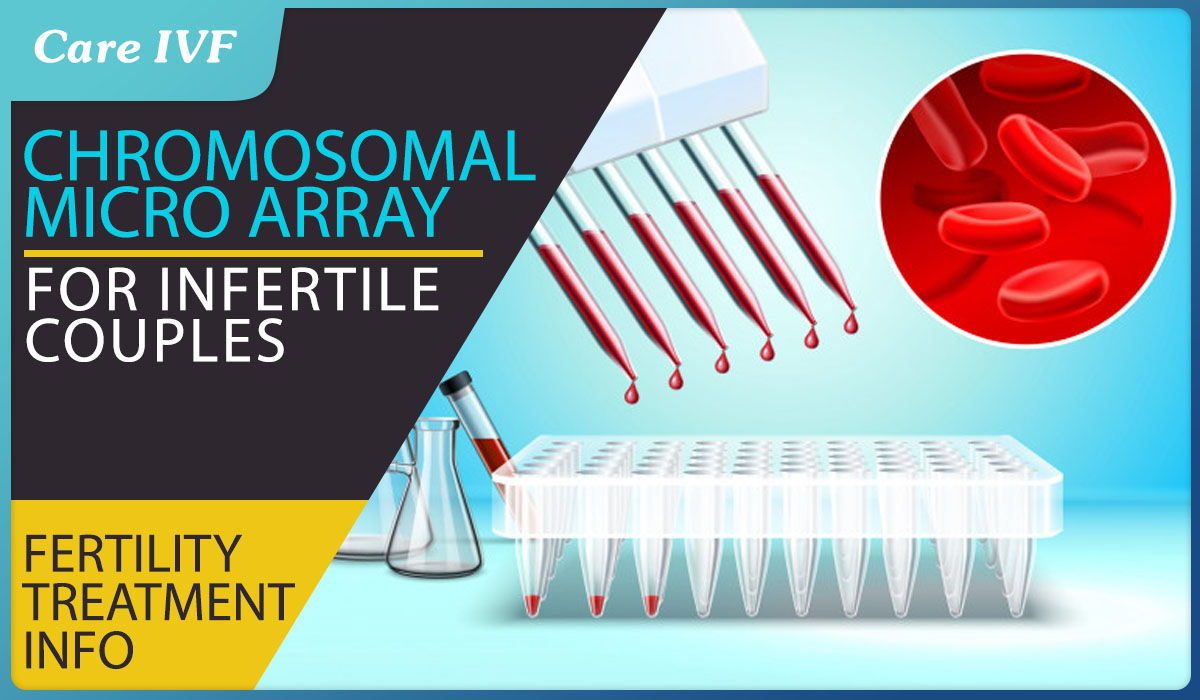

Genetic testing through Microarray - Who should go for this?
Microarray analysis is a DNA-based method of genetic testing that can identify chromosome abnormalities that are below the detection capability of conventional chromosome analysis. Microarray analysis can be performed on prenatal diagnostic samples, peripheral blood, and products of conception.
What is Chromosomal Microarray?
The human body contains genetic information that is bundled into packages called chromosomes. Any changes in the genetic combinations, like addition or deletion within chromosomes, can cause medical conditions like birth defects, developmental delays, autism and other health issues.
Chromosomal Microarray uses advanced technology to provide expanded genetic testing by detecting both large and small chromosomal changes.
Through a combination of copy number probes and SNP probes, CMA is able to detect smaller changes in chromosomes that normally goes undetected in traditional tests, which focuses on whole chromosomal structure (Karyotype).
When is Chromosomal Micro Array testing recommended?
- If maternal blood tests during pregnancy were abnormal, indicating an increased chance of a medical condition or birth defect.
- If an abnormal finding is seen on ultrasound and other genetic testing has been normal.
- If you previously had a child with medical condition, particularly one associated with chromosomal changes.
- In case of Recurrent Pregnancy Loss
- In case of advanced maternal age
Chromosomal Micro Array in Prenatal settings:
The American Congress of Obstetricians and Gynaecologists (ACOG) and the Society for Maternal-Fetal Medicine recommend CMA as a replacement for the Foetal karyotype in patients with a pregnancy demonstrating one or more major structural abnormalities on ultrasound when undergoing invasive prenatal diagnosis.
CMA in Paediatric Settings:
CMA is also an appropriate follow-up test for individuals with congenital anomalies with a previously normal conventional chromosomal study.
The American College of Medical Genetics (ACMG), American Academy of Paediatrics (AAP) and the American Academy of Neurology (AAN) all recommend chromosomal microarray testing for individuals with one or more of the following:
- Developmental delays or intellectual disability
- Birth defects
- Unusual physical features
- Autism spectrum disorders
Advantages of Chromosomal Micro Array over Karyotyping:
- The primary advantage of CMA over conventional karyotyping is the ability of an array to interrogate the genome at a higher resolution and therefore, array should have a higher sensitivity for identifying clinically significant abnormalities
- Another important issue to consider is the turnaround time from prenatal sample collection to result availability. Currently, it takes 1–2 weeks for a karyotype result to become available, as cells must be cultured and scanned. For MA, cell cultures are not necessary since there is sufficient DNA in most villus and amniotic fluid samples from direct isolation. This is particularly true for analysis of stillborn in which cell culture may not be possible. In addition, microarray scanning is automated and does not require the same time and effort as scanning slides for karyotypes. Thus, turnaround times will be much shorter.
Limitations of Chromosomal Micro Array:
As is the case with karyotyping and other technologies, microarray has limitations for prenatal testing. One of the most frequently mentioned limitations is that CMA will not detect truly balanced translocations.
Important Take-home Points:
CMS doesn’t detect balanced chromosomal translocations
CMA doesn’t identify all genetic disorders. CMS uses probes of known genetic mutations but there may be variants in some cases in which case Parental CMA analysis (Using probe is made out of the specific mutated sequence in the parental DNA) many be needed for a more accurate diagnosis.
Genetic consultation can be helpful in ordering and interpreting microarray analysis, and may also identify an indication for additional genetic testing, based on clinical findings and family history when determining a diagnosis.
Article Tags
About the author

Leave a Comment